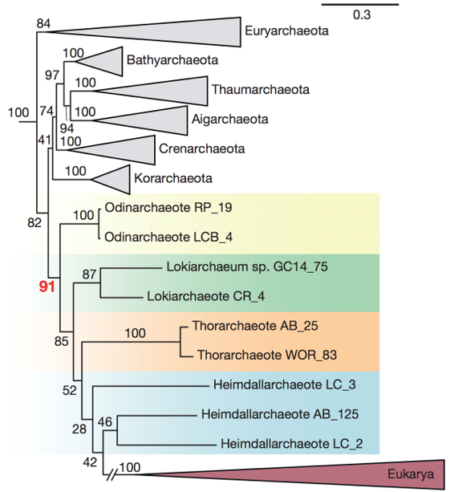Scientific Achievement
Regarding eukaryote origin, we describe a superphylum of uncultivated archaea whose genomes are enriched for proteins formerly considered eukaryote specific, indicating the archaeal host cell already contained many key components that govern eukaryotic cellular complexity.
Significance and Impact
The findings support the phylogenetic inference that eukaryotes arose from an archaeal lineage, which potentially shifts the tree of life back to two domains, Results elucidate archaeal innovations that may have laid the foundation for the evolution of complex, multi-cellular life.
Research Details
- Archaeal genomes that group together phylogenetically were collected from a variety of different ecosystems
- Together, these genomes were used to define the new archaeal superphylum referred to as Asgard
- Genomes were investigated regarding their metabolic capacities
- Normally eukaryotic pathways were identified.
Citation
Zaremba-Niedzwiedzka, K.; Caceres, E. F.; Saw, J. H.; Bäckström, D.; Juzokaite, L.;et al..; Banfield, J. F.; Schramm, A.; Baker, B. J.; Spang, A.; Ettema, T. J. G. (2017) Asgard archaea illuminate the origin of eukaryotic cellular complexity, Nature, 541(7637), 353-358 DOI: 10.1038/nature21031.

